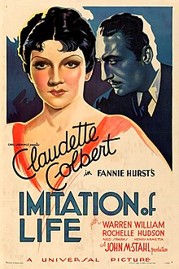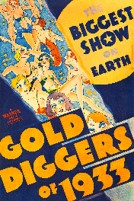Fireside Favorites with TCM Host Jacqueline Stewart
Just this week 25 films were added to the National Film Registry of the Library of Congress. The 2021 selection of influential motions pictures represent one of the most diverse slate of films to enter the registry. The roster includes films dating back nearly 120 years to the silent era and representing the work of Hollywood studios, independent filmmakers, documentarians, women directors, and filmmakers of color. Three films on the 2021 list directly address racially motivated violence against people of color. Of the films TCM host and film historian Dr. Jacqueline Stewart, who serves as chair of the National Film Preservation Board, said, “We strive to look at the range of films, those that are entertaining and inspiring, but also those films that raise more difficult questions, titles that get us to recognize that films are documents of our complex social and political history and that their preservation is absolutely essential if we’re going to look honestly at our past.”

That Jacqueline would pick two classic films selected for preservation in the National Film Registry being deemed “culturally, historically, or aesthetically significant” as her TCM Fireside Favorites programming selections comes as no surprise.
In 2005, Imitation of Life from 1934 was named to the list and in 2007 noted by Time as one of “The 25 Most Important Films on Race.” Notably when released, the film was nominated for Best Picture, Best Assistant Director, and Best Sound, Recording, at the 7th Academy Awards.
Universal Pictures faced difficulty in making Imitation of Life (1934), particularly in receiving script approval from the censors at the Hays Office to pass the Production Code in place at the time. Joseph Breen head of the Hays Office objected to the miscegenation in the story which depicts a Black girl passing herself off as white as well as the cohabitation of a Black woman and a white woman and their children. He believed the script to be “very dangerous from the standpoint both of industry and public policy.” Universal struggled with the censors who believed their role to be “negotiating how boundaries of racial difference should be cinematically constructed to be seen, and believed, on the screen.”
Two weeks into shooting the film finally received approval from the Hays Office to proceed. In 1934, Imitation of Life was considered a ground-breaking depiction of race relations and racial tolerance on film. While today’s audiences may find within cringe-worthy moments where the Black characters are patronized, it nonetheless is a must-see melodrama featuring complex relationships and powerful performances. Imitation of Life remains a socially significant film.
Jacqueline’s other Fireside Favorites selection, Gold Diggers of 1933, is another film selected for preservation in the National Film Registry. Seventy years on from its making in 2003, it too was noted as being “culturally, historically, or aesthetically significant.” Made during the Great Depression, the film depicts the financial woes of the era against the backdrop of a stage show.
Gold Diggers of 1933 contains four song and dance numbers staged and choreographed by Busby Berkeley. Renowned for elaborate musical production numbers often featuring large casts of showgirls arranged in complex geometric patterns, the performances in Gold Diggers of 1933 attracted the attention of the Hays Office as “lyrical and lewd.” To circumvent the censors, it was the first film to use alternative footage to make different versions of the movie for distribution with reels labeled according to district. Based on censor and audience acceptance, one version could be sent to New York City, another to markets in the South, and another for foreign markets like the U.K.
Gold Diggers of 1933 is a quintessential Pre-Code film, encapsulating the spirit of the flapper era with a narrative driven mostly be women. These women work and their worries center on their ability to provide for themselves in an era where poverty is the great equalizer. It examines gender and sexuality featuring four distinct and fascinating female leads struggling against the Great Depression. This historically significant film serves as an important time capsule of a bygone era.


